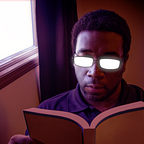Joining the Catholic Church
“For as they live among his works they keep searching, and they trust in what they see, because the things that are seen are beautiful. Yet again, not even they are to be excused; for if they had the power to know so much that they could investigate the world, how did they fail to find sooner the Lord of these things?”
— Book of Wisdom 13:7 (RSVCE)
Sophomore year high school, 1997. Provoked by the secular humanist movement of the time, and my disdain for Young Earth Creationists, I rejected my Baptist upbringing. Where I expected empowerment, I only found a huge hole filled with questions. “How should I live? What happens when I die?” The glib response from atheists was inadequate.
By my mid-twenties, I sought answers from Eastern Religion. In 2007, I settled with Theravada Buddhism because it was marketed as a godless religion that aligned with my center-right social views. I understood the need for restraint and morality, but I didn’t want a god involved. After twelve years of Vipassana and Buddhānussati practice, my temperament calmed, and I better understood the benefits of devotion. However, the heavy renunciant leanings of Theravada doctrine eventually left me isolated and detached.
Next I tried Zen Buddhism. My initial connection, though strong, quickly severed when I scratched beneath the surface for practical ways to apply its cryptic teachings. I found little motivation to engage with the world, and my existential dread remained in tact. Admittedly, the Diamond Sutra, a central Zen text, made me reconsider the potential closeness between humanity and the divine. Maybe the vast spaces separating us are not so vast.
August 20th, 2019. Humbled by my own glaring shortcomings, and frustrated by human intermediaries, I felt, perhaps for the first time in my thirty-eight years, a genuine desire to find the voice of God.
With my prejudices for the Abrahamic faiths still present, I first sought God in Hinduism. Hindu doctrine was more substantive, but the centrality of Indian culture made me feel unwelcome. Further, I disliked the constant pressure to submit to a guru, and the personalized god (or Ishta-Deva) framework had a relativistic quality I could not find truth in. Regardless, I took away a useful teaching on utilizing narratives as access points to the divine. Oddly, reading about Krishna in the Bhagavata Purana made me reconsider the historicity of Jesus.
Feeling desperate, I looked to conservative and orthodox Judaism. I transferred $13.50 from my savings account, and ordered To Be A Jew by Rabbi Donin, which I read with The Hebrew Bible for the next month. Things were going well until I skipped ahead to the Book of Job, and later learned how expensive Jewish conversion could be. Why would such a cruel God demand our devotion? And why should finding God have a price tag?
I was lost and exhausted. I could neither return to the pessimism of Buddhism, nor the decadence of secularism, and neither Hinduism nor Judaism would suffice. I had explored every reasonable option except Catholicism, Orthodoxy, Protestantism, and Islam, each of which I still disregarded. Regardless, I needed something to ease my anxiety before bed, so I grudgingly queued up some speakers from various religious groups on my Bluetooth headband. Maybe they could make a point I had not heard before, or at least help me fall asleep.
My heart was quickly drawn to the Catholic speakers. In a notable YouTube video titled Why Does God Let Bad Things Happen?, answering the objections I had with the Book of Job, Father Schmitz brilliantly explains how God voluntarily relinquishes a degree of power when he creates something outside of himself. To support this reading, he cites the Book of Wisdom—a text excluded from the Protestant bibles—1:13: “God did not make death, nor does he rejoice in the destruction of the living.” Therefore, suffering provides opportunities to learn, not to withdraw, or misplace blame.
Such perspectives brought more direct insight than the Dharmic and secular beliefs I tried to accept. I never entirely clicked with the notions we could be haunted by karma from previous lives, or nothing supernatural exists, and the universe, after sitting empty for an eternity, suddenly came to be unprovoked.
I engaged with more Catholics, and combed through the resources they recommended. This new path, which I stubbornly avoided, brought a rich clarity I had not seen before, grounded in compassion, critical thought, and a personal relationship. Looking back, maybe there was a reason for me to go on this arduous spiritual journey. Otherwise, I might have still had lingering curiosities about other religions, and not fully appreciate the light I would find.
